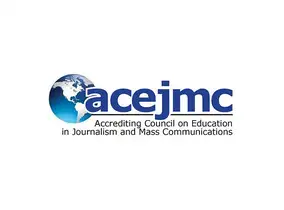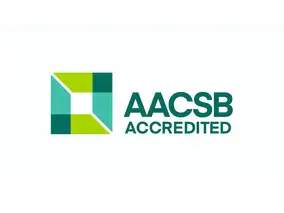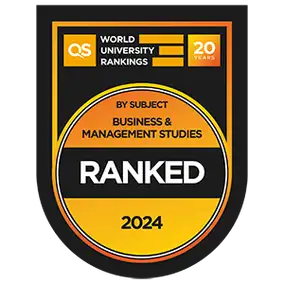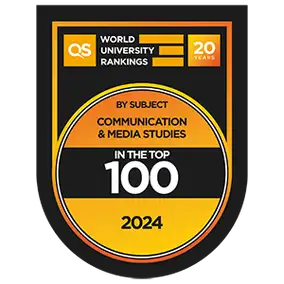Where you can study
International students
International students are not New Zealand citizens or residents.
Specialise in Journalism for your Bachelor of Communication at Massey
Journalism at Massey is hands-on, practical, and you learn from journalists working both here and overseas. Produce stories in fields you are passionate and curious about such as in politics, sport, or social issues. Students get to develop skills in written, audio, photographic and video forms by producing work which may be published. You will have the opportunity to experience editing and publishing and global investigative and data journalism among the range of courses offered.
| ACEJMC accreditation | ||
|---|---|---|
| Year | Students continuing into Year Two |
Number of graduates |
| 2021 | 64.3% | 15 |
| 2022 | 64% | 13 |
| 2023 | 69% | 14 |
A quality qualification
The quality of Massey’s journalism courses is internationally recognised. You learn from lecturers who have vast experience (often as leading journalists themselves). Our journalism school is New Zealand’s most long-standing, and has many graduates who are household names and celebrities.
Sought-after by employers
85% of graduates are employed within six months of graduation. These graduates are employed across nine different industry categories with more than 60 different job titles.
International recognition
Accreditation means your degree is internationally recognised, making it easier to arrange a student exchange and find employment overseas.
Connect with industry while you study
You can take advantage of Massey’s close relationships with industry by taking the communication internship. This gives you professional work in a local organisation. You’ll get some great networking opportunities. This means you have already built relationships with potential employers before you graduate.
Further study
After you graduate, you could go on to further in-depth development with a Postgraduate Diploma in Journalism.
A Bachelor of Communication in Journalism is a good fit if you:
- want a career as a journalist or in communication
- are interested in current affairs
- enjoy learning how the news media works.
Planning information
Full-time study in your first year comprises eight 15-credit courses, for a total of 120 credits. We recommend studying 60 credits per semester. You may also wish to take some courses at summer school but ensure you include those that are required for the next level of courses.
Although you are asked to nominate your BC major and minor when enrolling, please be aware that you can change these once you are enrolled.
No course can be credited to a major and a minor.
Research or practice ‘tracks’
There are two 'tracks' at 300 level.
1. The 'Journalism Research track' is for those who are not necessarily intending to become a journalist, but may want to go on to do further study at postgraduate level.
2. The 'Journalism Practice track' emphasises journalism practice, and aims to prepare you to enter the workforce as a journalist. If you wish to take this track, please make your intentions known to your journalism lecturers.
This major
Completing a major is compulsory. The Journalism major requires 120 credits including at least 60 credits at 200 level and 60 credits at 300 level.
Minors
Completing a minor is compulsory.
Minors increase the breadth of your degree. They give you extra knowledge, attributes and capabilities.
The journalism major is from the Massey Business School. That means you must choose a minor from the list the College of Humanities and Social Sciences offers:
- Expressive Arts
- International Languages
- Linguistics
- Media Studies
- composite Expressive Arts/Media Studies.
A journalism minor (for students who are studying a different degree)
If you are not studying a Bachelor of Communication and wish to complete a minor in journalism see the Bachelor of Communication regulations for requirements.
Official regulations
To understand what you need to study and must complete to graduate read the official rules and regulations for this qualification.
You should read these together with all other relevant Statutes and Regulations of the University including the General Regulations for Undergraduate Degrees, Undergraduate Diplomas, Undergraduate Certificates, Graduate Diplomas and Graduate Certificates.
Returning students
For returning students, there may be changes to the majors and minors available and the courses you need to take. Go to the section called ‘Transitional Provisions’ in the Regulations to find out more.
In some cases the qualification or specialisation you enrolled in may no longer be taking new enrolments, so may not appear on these web pages. To find information on the regulations for these qualifications go to the Massey University Calendar.
Please contact us through the Get advice button on this page if you have any questions.
Courses you can enrol in
Course planning key
- Prerequisites
- Courses that need to be completed before moving onto a course at the next level. For example, a lot of 200-level courses have 100-level prerequisite courses.
- Corequisites
- Courses that must be completed at the same time as another course are known as corequisite courses.
- Restrictions
- Some courses are restricted against each other because their content is similar. This means you can only choose one of the offered courses to study and credit to your qualification.
Core courses for the Bachelor of Communication
As well as the specialisation courses listed below, this qualification has core courses that you will need to complete.
Bachelor of Communication core courses
Journalism courses
Compulsory courses
Course code: 219204 News Media and Society 15 credits
This course examines the structure and functions of New Zealand news media, including its linkages to global news media systems. It also examines how different social identities are constructed in news media.
View full course detailsCourse code: 219223 Specialist Reporting 15 credits
The theory and practice of reporting on a specialist area of the student's choice (e.g. arts, music, sports, business, science), including building a portfolio of news and feature stories to a publishable standard in either print and/or multi-media formats.
View full course detailsCourse code: 219231 News Reporting 15 credits
An exploration of current principles and practices and the fundamentals of news gathering and news production.
View full course detailsCourse code: 219234 Editing and Publishing for Journalism and Communication 15 credits
Editing text for print and web publication, and understanding and applying the principles of design and layout in publishing.
View full course detailsCourse code: 219325 Current Affairs Journalism 15 credits
The theory and practice of covering current affairs, including national and local politics and other issue-based and breaking news stories in either print or multi-media formats.
View full course detailsCourse code: 219335 Media Law and Ethics 15 credits
A reflection on ethical issues involved in contemporary media practices and the application of the principles of media law.
View full course detailsCourse code: 219304 Intercultural Communication 15 credits
This course compares the communication behaviours of different cultures. Students will develop skills that help them analyse and address intercultural conflicts and issues, and gain skills that allow them to communicate effectively in intercultural contexts.
View full course detailsCourse code: 219309 International Case Studies in Public Relations 15 credits
An examination of the practice and theory of public relations internationally, overviewing the increasingly global industry structure, comparing international theoretical approaches, and introducing specialist intercultural communication skills for internationally mobile public relations practice.
View full course detailsCourse code: 219311 Communication Internship 15 credits
This course provides students with a period of workplace experience with knowledge of communication concepts and terminology gained throughout their degree, in a series of analytical assessments.
View full course detailsCourse code: 219336 Global, Investigative and Data Journalism 15 credits
Explore the diversity of journalism as it is practised around the world, including investigative, undercover and data journalism.
View full course detailsEntry requirements
Admission to Massey
All students must meet university entrance requirements to be admitted to the University.
Specific requirements
There are no specific entry requirements for this qualification, outside of university admission regulations.
English language requirements
To study this qualification you must meet Massey University's English language standards.
English language skills
If you need help with your English language skills before you start university, see our English for Academic Purposes (EAP) courses.
Can't meet the entry requirements?
If you need to do a course before you start your qualification, there may be options for you in Summer School.
Fees and scholarships
Fees, student loans and free fees scheme
Your tuition fees may be different depending on the courses you choose. Your exact fees will show once you have chosen your courses.
There will also be some compulsory non-tuition fees and for some courses, there may also be charges for things such as study resources, software, trips and contact workshops.
- Get an estimate of the tuition fees for your qualification
- View a list of non-tuition fees that may be payable
Already know which courses you're going to choose?
You can view fees for the courses that make up your qualification on the course details pages.
Student loans (StudyLink) and Fees Free scheme
You may be eligible for a student loan to help towards paying your fees.
The New Zealand Government offers fees-free tertiary study for eligible domestic students. Find out more about the scheme and your eligibility on the Fees Free website. To use the site's eligibility checking tool, you will need your National Student Number.
Current and returning Massey students can find their National Student Number in the student portal.
- Student loans (StudyLink)
- Fees Free
- Student portal
Scholarship and award opportunities
- Brian Gaynor Initiatives – Scholarship in Journalism
- Piki Ake Kake Ake Scholarship
- The Fergusson Fund Media Scholarship
Fees disclaimer
This information is for estimation purposes only. Actual fees payable will be finalised on confirmation of enrolment. Unless otherwise stated, all fees shown are quoted in New Zealand dollars and include Goods and Services Tax, if any. Before relying on any information on these pages you should also read the University's Disclaimer Notice.
Careers and job opportunities
There are opportunities for journalists in areas including:
- news organisations and newspapers (metropolitan or community)
- corporate work
- magazines
- television
- radio
- social media.
Journalists can advance further to senior roles such as news director, producer or editor.
Graduates of the Massey journalism qualification have gone on to work at New Zealand's top news organisations such as Stuff, the NZ Herald, Radio New Zealand and TVNZ as well as at international news outlets such as The Guardian, BBC, CNN, SBS Al Jazeera and Reuters.
International students
New Zealand is a great place to study. Massey University’s reputation is supported by our international rankings, accreditations and associations. We are rated five star plus by the QS World University Rankings.
Massey University has small class sizes, and our lecturers and staff are friendly and approachable.
As an international student, there are entry requirements that will apply to you. We recommend that you apply at least three months before your anticipated start date so your application can be processed in time. There are additional steps you will need to take. These include obtaining a visa and travel bookings if your study is to be in New Zealand.
“I have combined my writing skills with my passion for learning about the world around me. I knew I wanted to share important stories and be part of something that could make a difference, and I feel journalism enables me to do just that.”

Accreditations and rankings

Accrediting Council on Education in Journalism and Mass Communication (ACEJMC)
Massey’s Bachelor of Communication is the only degree outside the Americas and the Middle East to be recognised by the Accrediting Council on Education in Journalism and Mass Communication (ACEJMC).

Association to Advance Collegiate Schools of Business (AACSB)
Massey Business School is rated in the top 5% of global business colleges by AACSB International.

QS Ranking - Business Management Studies
Massey University is ranked by QS (Quacquarelli Symonds) as one of the top 400 universities for business and management.

QS Ranking - Communication and Media
Massey is ranked by QS (Quacquarelli Symonds) as one of the top 100 universities for communication and media studies. QS is an organisation that ranks universities worldwide in various topics.
Related study options
Global Communication – Bachelor of Business
Develop skills critical to effective communication in a rapidly changing global environment.
Journalism – Master of Management
With Massey’s Master of Management in Journalism, you can take your journalism career to the next level.
Media Studies – Graduate Certificate in Arts
Interested in television and popular culture? Social media and the blogosphere? Film and cultural theory? Media studies can help you unlock your creative potential and develop practical skills to excel in your career.
Media Studies – Bachelor of Arts (Honours)
With Massey’s Bachelor of Arts (Honours) (Media Studies), you’ll develop versatile skills that will make you highly sought-after in many careers.
Media Studies – Bachelor of Arts
Interested in television and popular culture? Social media and fake news? Filmmaking and cultural theory? Media studies can help you unlock your creative potential and develop practical skills to excel in your career.
Media Studies – Diploma in Arts
With Massey’s Diploma in Arts (Media Studies) you’ll gain an understanding of the production, consumption, and content in the media industry.
Media Studies – Bachelor of Communication
Discover how the media shape our identities and our world. Massey will help you create, critique, and connect with the media world, building skills to understand and make media for a wide range of professional communication roles.
Media Studies – Postgraduate Diploma in Arts
Build on your undergraduate interests in media studies with Massey’s Postgraduate Diploma in Arts (Media Studies). Develop your research and analysis skills by exploring an area that interests you.
Media Studies – Master of Arts
With Massey’s Master of Arts (Media Studies), develop critical research skills exploring an aspect of media that interests you. Gain advanced insights into media studies that will build on your undergraduate knowledge.
Media Studies – Graduate Diploma in Arts
Create, critique, and connect with your media world with the Graduate Diploma in Arts (Media Studies). You will gain the equivalent of an undergraduate major in media studies without completing a second bachelor’s degree.
Postgraduate Diploma in Journalism – PGDipJ
Gain practical industry skills through Massey’s journalism qualifications, the only qualifications in Australasia accredited by US organisation the Accrediting Council on Education in Journalism and Mass Communication.
Useful planning information

Key information for students
Compare qualifications and academic information across different New Zealand institutions. Learn more on careers.govt.nz
